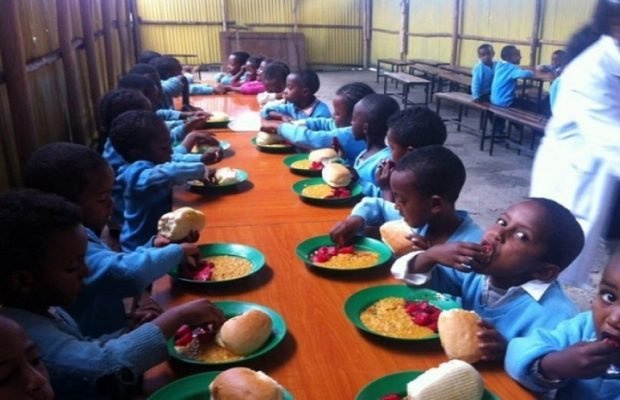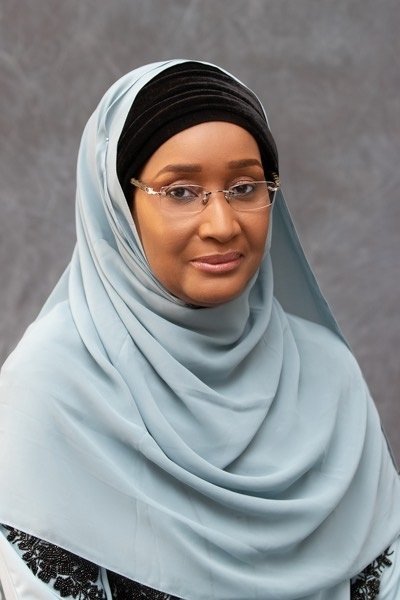The Ministry of Humanitarian Affairs, Disaster Management and Social Development has announced that the modified Home Grown School feeding Programme will commence on Thursday May 14, 2020 in Abuja then subsequently in Lagos and Abuja before going to other states of the federation.
Here are 13 key things you need to know about this programme:
- Why are school children being fed at home? The programme is being implemented based on a March 29, 2020 presidential pronouncement directing the Federal Ministry of Humanitarian Affairs, Disaster Management & Social Development to liaise with state governments to develop strategies on the continuation of the school feeding program
- The Federal Ministry of Humanitarian Affairs, Disaster Management & Social Development in consultation and collaboration with state governments identified the distribution of Take-Home Rations (THR) to the households of the children on the programme as a feasible method of achieving this directive after exploring several options.
- In order to trace the children who are at home due to the lockdown, the Federal Ministry of Humanitarian Affairs, Disaster Management & Social Development requested states to carry out mapping exercises in order to trace the households of the children using all available data sources including the School Based Management Boards, community focal persons, cooks on the programme and most importantly existing school registers in the LGAs where the schools are domiciled, which is the primary source of data of beneficiaries used by the National Home Grown School Feeding Programme. As a second level of verification, the door to door voucher distribution process will be used. This is currently ongoing in Abuja and Lagos.
- The Federal Ministry of Humanitarian Affairs, Disaster Management & Social Development is not implementing the programme? The Federal Government is providing funds to the States for implementation and the programme will be carried out based on data provided and structures put in place by the HGSFP over the years
- The programme will run in all 36 states and the FCT. Following requests from Kwara & Bayelsa where the programme was not fully operational before the lockdown, the two states will now benefit from the modified programme once certain requirements are fulfilled.
- Contrary to ongoing speculation, the Take-Home Rations would NOT be given to CHILDREN but to the parents & guardians & caregivers of children in primary 1 to 3 in public schools participating in the programme. A total of 3,131,971 households are targeted for this intervention.

- For beneficiaries to be able to access the Take-Home Rations QR coded vouchers will be distributed door to door. They will be serialized as well as date and time stamped. Once presented at a distribution center, identified head of households would be able to collect the Take-Home Rations.
- Each Take-Home Ration is valued at N4,200 & made up of 5 kg Bag of Rice, 5 kg Bag of Beans, 500 ml Vegetable Oil, 750 ml Palm Oil, 500 mg Salt, 15 pcs of eggs, 140gm Tomato Paste. These rations have been reviewed by nutrition experts.
- Safety remains a collective responsibility, so the ministry has incorporated rapid sensitization into all phases of this model, so that people are equipped with the knowledge they need to stay safe and maintain social distancing.
- To ensure that the programme is not mismanaged, the Federal Ministry of Humanitarian Affairs, Disaster Management & Social Development has requested other government agencies including the DSS, EFCC, ICPC, Code of Conduct Bureau & a host of NGOs & CSOs to help monitor. The Ministry’s hotlines will be made available to the public to provide accurate information and for grievance redress
- The Ministry is receiving Technical Support from the World Food Programme (WFP). Following on the technical partnership with the WFP, a joint document on “Safe Distributions during COVID” has been developed & will be shared with the State Governments before implementation.
- The Federal Ministry of Humanitarian Affairs, Disaster Management & Social Development is cognizant of the fact that some states have children not already on the programme? While this is primarily for school children currently enrolled on the programme, the ministry has also been engaging partners and other agencies to explore options for those children who are not current beneficiaries.
- The Take Home Rations would be distributed from over 6,000 schools which will serve as distribution centers for clusters of communities except in some states with unique security and safety issues where other structures will be used.











